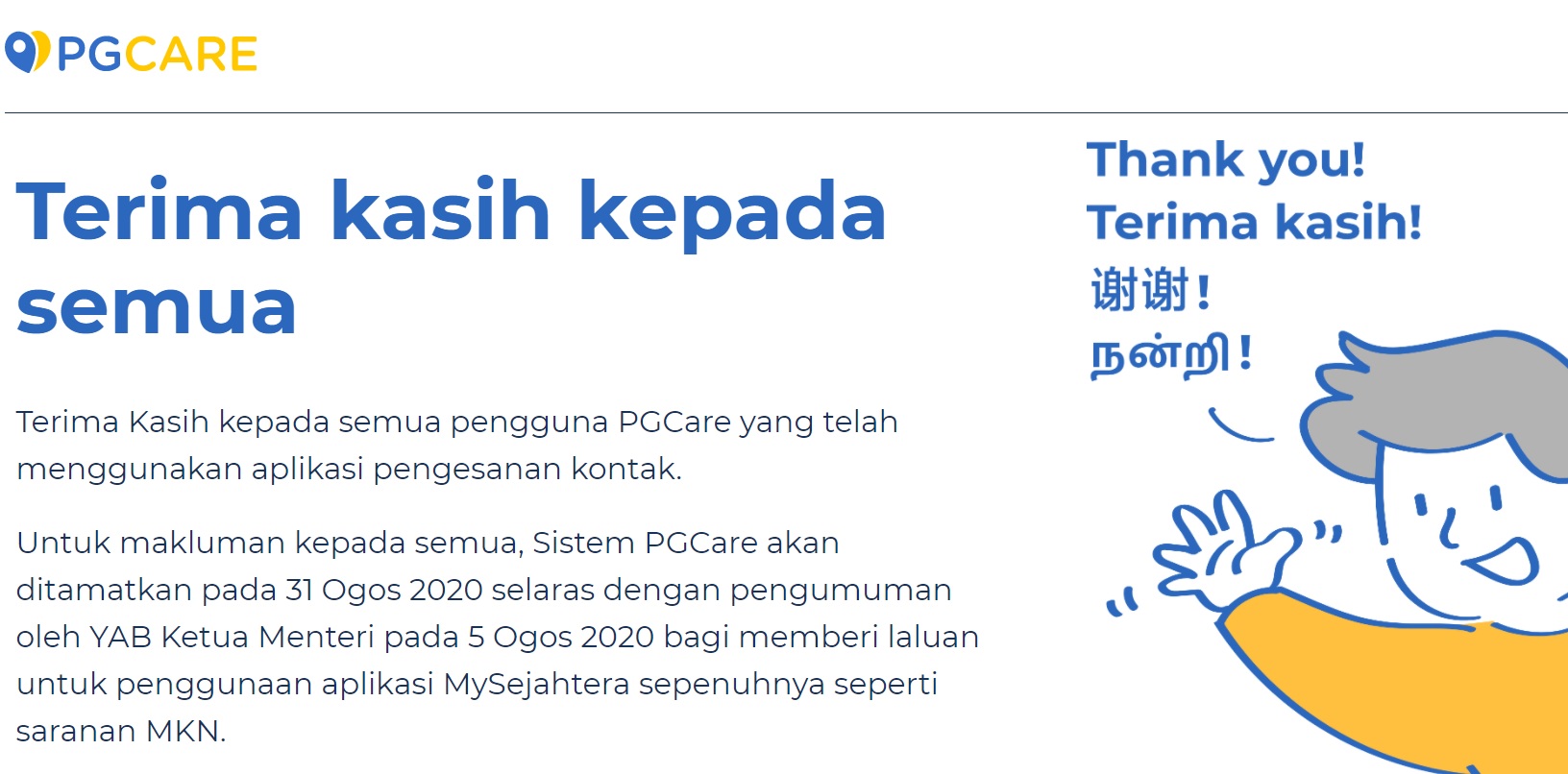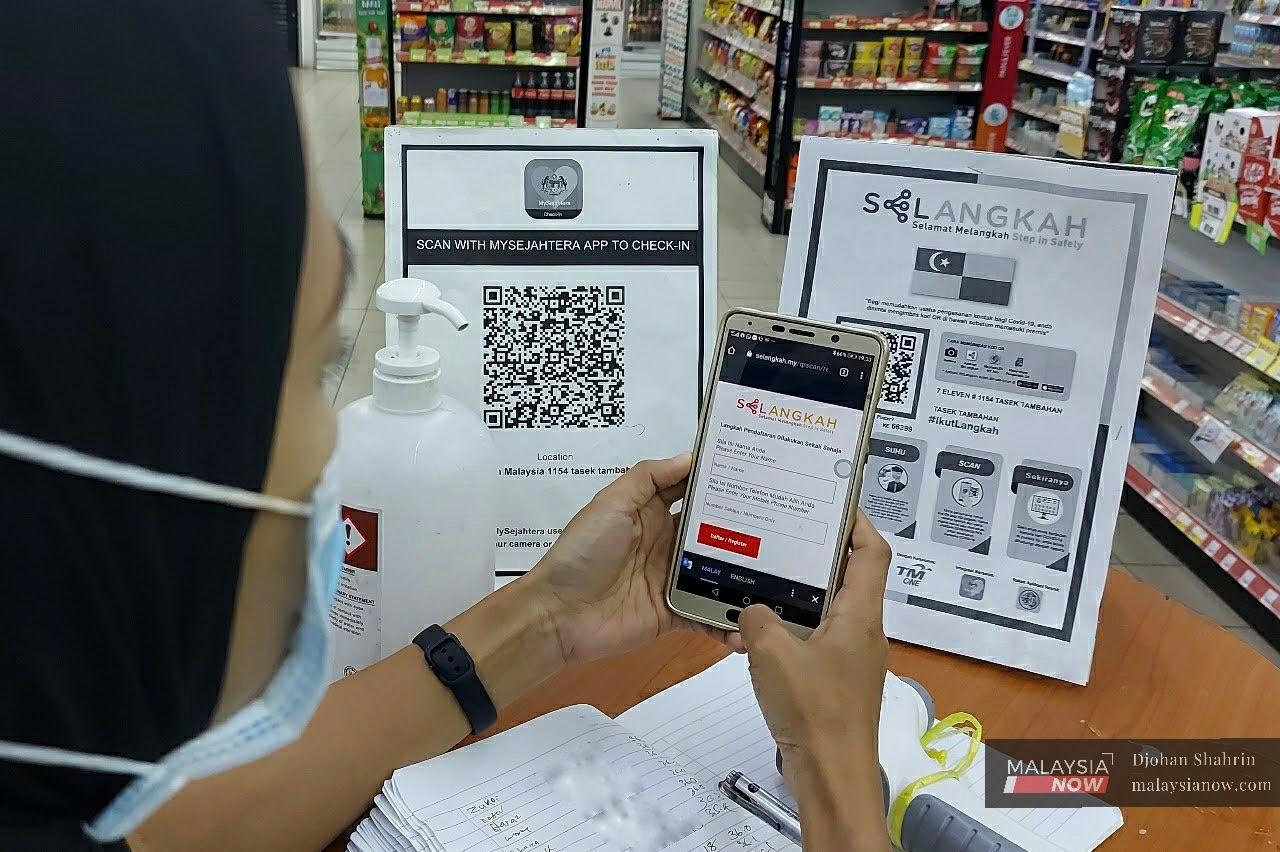Selangor’s SELangkah found to be ‘inferior’ to MySejahtera, checks reveal
One weakness is its lack of validation process, which means anyone can check in at an outlet displaying a QR code on behalf of someone else.
Just In
Selangor’s SELangkah app has been found to be lacking in basic functionalities needed for any Covid-19 contact tracing, as well as a crucial step in validating details keyed in by users, MalaysiaNow has learnt through an analysis of the application by software development engineers.
They concluded that the app is “much inferior” to the MySejahtera contact tracer launched by Putrajaya for nationwide use.
“It’s a super simple app. Compared to SELangkah, MySejahtera has more functionalities such as its Covid-19 hotspot tracker, dependents management and behavioural risk,” said a quick evaluation report of the app sent to MalaysiaNow.
It said while SELangkah has its own red zone map, it is “not as robust as MySejahtera”.
The findings come as Selangor continues recording the highest number of daily infections despite the formation of a special task force by the state government outside the purview of the federal health ministry which has been leading the nationwide battle against the pandemic.
The state also went its own way to monitor businesses and public places during the pandemic by introducing the SELangkah app, developed for it by a private firm.
- Selangor to relaunch SELangkah contact tracing app
- Selangor continues to fare worst in daily virus spikes despite SELangkah app
The Penang government, too, initially released its own PGCare app but then decided to shift to Putrajaya’s MySejahtera app for contact tracing purposes.
In the wake of alarming infection numbers from Selangor, accounting for half of the total nationwide, the head of the state’s Covid-19 task force, former health minister Dzulkefly Ahmad, accused the federal government of not sharing raw data to help the state in its battle.
Health director-general Dr Noor Hisham Abdullah had previously explained that any raw data sharing with Selangor would be difficult as there would likely be conflicting data interpretations.
Selangor’s streak of high daily infections has led to questions on the efficacy of its SELangkah app.
MalaysiaNow recently reported that SELangkah has been facing problems obtaining accurate data and other details on Covid-19 infections, forcing its developer to re-launch it with several “improvements”.
Even then, the app’s developer, Dr Helmi Zakariah, has praised his product as an “all-in-one digital platform” that connects Selangor’s population to “healthcare providers, business communities, and their elected state government”.
In an angry response to MalaysiaNow, he clamed that SELangkah has a higher level of “analytic sophistication” as well as “ease of use for healthcare workers”.
But a recent evaluation, supported by MalaysiaNow’s IT team, indicates otherwise.
Essentially, it was found that SELangkah is no different from any other app with camera access.
“When you scan it, it opens the browser and does the check-in on their SELangkah.my website,” said the evaluation report.
On the other hand, it said, the MySejahtera app does a lot more.
“MySejahtera does not open any external apps such as the browser. It does everything within the app. For every check-in, it makes an API call to its servers to register.”
Translation?
“There will be a backend server which communicates with the app every time a user scans the app. In other words, it will send the check-in information keyed in by the user to the backend servers to be stored, so that it can be accessed from the database,” the report explained.
One weakness of SELangkah, which as its name suggests, is a “one-step” registration that can be used at different outlets, is how it collects information.
The user only has to key in a name and phone number. Without a validation process, anyone can check in at an outlet displaying a QR code on behalf of someone else.

In contrast, it is almost impossible to do that with MySejahtera which also collects an additional detail, the user’s MyKad number, combined with a security layer.
“MySejahtera uses a password. You will need someone’s password for login and check-in. You cannot re-register if the MyKad or phone number already exists in the system.”
A quick test confirms the observation. Lacking a verification layer, SELangkah accepts the record of any random name and number.
App developer attacks MalaysiaNow
In an angry written response to MalaysiaNow’s report on doubts over SELangkah, Helmi, the developer of the app, said the software could save “hundreds of working hours and allow contact tracing to be done effectively”.
He even made a claim about how the app had kept Covid-19 cases at a minimum in the state.
“When SELangkah was actively used in Selangor (between week-3 May 2020 to mid-August 2020), we managed to keep the number of positive cases low.”
Helmi said SELangkah’s “success story” was cut short by a “rumour”, as well as Putrajaya’s move to make the use of MySejahtera compulsory.
“Anxiety grew among shopkeepers once they heard rumours and reports of other businesses being fined for continuing to display their SELangkah poster alongside the new MySejahtera one. This effectively removed the SELangkah usage,” he added.
Helmi offered little explanation of how SELangkah fulfils its ultimate objective of contact tracing, besides saying that the app has been “reoriented to come up with solutions to problems regarding essential public services”.
“They include subsidised mass Covid-19 community testing, touchless payment system for small businesses, state welfare distribution, home monitoring tools, vaccine slot pre-registration, and etc.”
He also launched a vitriolic outburst against MalaysiaNow.
“To the editor and reporters at MalaysiaNow, I would recommend you to familiarise yourself in deciphering data and understanding figures so as to avoid being the source of infodemic,” Helmi wrote.
He then named news portal Malaysiakini as a competitor, describing it as MalaysiaNow’s “namesake” which knows better how to comprehend data. MalaysiaNow cannot independently verify the claim.
Subscribe to our newsletter
To be updated with all the latest news and analyses daily.
